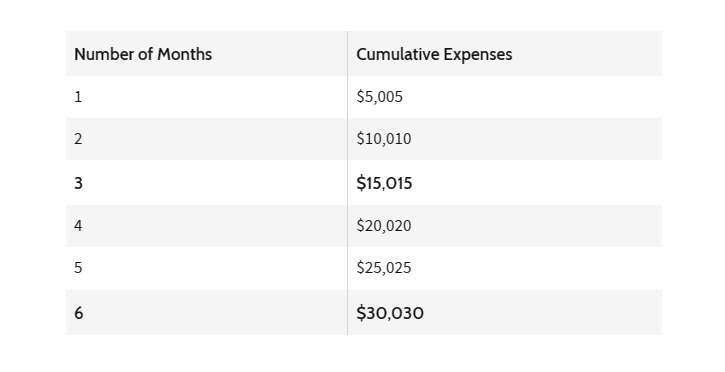In today's challenging economic climate, knowing how to save moneyhas become more important than ever. While it may seem daunting, there are effective strategies to help you build your savings and achieve your financial goals.
Whether you're looking to create an emergency fund, save for a big purchase, or plan for retirement, implementing these money-saving techniques can make a significant difference in your financial well-being.
How To Save Money: 25 Proven Ways
If you're like most people, you probably want to save some extra cash. Increasing your income is one option, but it's equally important to focus on reducing your expenses. By implementing the following proven methods, you can significantly boost your savings without making drastic lifestyle changes.

25 Ways To Save Money And Still Have A Life
1. Optimize Your Grocery Shopping
Grocery prices have been on the rise, but there are several ways to lower your bill. Create a budget-friendly grocery list that includes both frozen and fresh, in-season produce. Look for sustainable seafood options and choose more affordable cuts of meat. Avoid expensive prepackaged items and take advantage of sales on pantry staples. By planning ahead and being mindful of your purchases, you can save a substantial amount on groceries.
2. Explore Different Stores
Instead of solely relying on your local grocery store or upscale retailers, consider shopping at lower-cost alternatives. Mom-and-pop stores and wholesale retailers like Walmart and Costco often offer more budget-friendly options. Warehouse clubs not only provide affordable groceries but also discounted gasoline.
3. Embrace Store Brands
Don't limit yourself to expensive name brands. Store brands or private labels can be just as good as their more expensive counterparts. In many cases, these products are manufactured by the same companies, with only the brandingbeing different. Switching to store brands allows you to save moneywithout sacrificing quality.
4. Plan Your Meals
Investing time and effort in meal planning can result in substantial savings. Build your meals around discounted items and weekly specials. Take advantage of the weekly discounts offered by grocery stores. By being flexible and adapting your meal plans to incorporate these deals, you can save a significant amount of money.
5. Embrace Imperfect Produce
Consider purchasing "ugly" produce, which is often overlooked by grocery chains due to its appearance. These items are perfectly fine in terms of quality and taste but are sold at a lower price. Programs like Imperfect Foods or Misfits Market offer these discounted grocery items. By buying imperfect produce, not only do you save money but also contribute to reducing food waste.
6. Avoid Upselling At Restaurants
Restaurants often use tactics to encourage you to spend more money. Be wary of dishes labeled as "chef's recommendations" or "house specialties." These items may feature ingredients that need to be used up or are obtained at a discount. Stick to your regular favorites unless the recommended dish genuinely appeals to you, and avoid unnecessary expenses.
7. Embrace Secondhand Shopping
Save money by purchasing secondhand items from online thrift stores. This approach is particularly beneficial for quickly outgrown items like children's clothing. However, it's not limited to clothing alone. Consider buying secondhand sports equipment, cars, furniture, toys, and bikes. Secondhand shopping not only provides significant savings but also reduces waste.
8. DIY Dry Cleaning
Instead of spending a substantial amount on professional dry cleaning services, learn how tosafely clean delicate garments at home. Many items labeled "dry-clean only" can be hand-washed, saving you money on dry-cleaning bills. Educate yourself on the proper methods to ensure your clothes remain in good condition.
9. Choose Reusable Items
Opt for reusable items instead of disposable ones to save money in the long run. Use washable rags or kitchen towels instead of paper towels. Invest in reusable water bottles, straws, and microfiber towels. While there may be a higher upfront cost, you'll recoup your investment over time and reduce your reliance on single-use items.
10. Use Digital Coupons
Forget about traditional paper coupons and embrace digital coupons. Many grocery stores offer mobile apps that allow you to clip and redeem coupons directly from your smartphone. Take advantage of apps like Flipp or Ibotta to find discounts on your staple items. This convenient method helps you save money without the hassle of clipping paper coupons.

NEW! How To Save Money With Digital Coupons | Digital How-To's | ShopRite Grocery Stores
11. Cash Back Apps
Utilize cash-back apps like Rakuten or Cently to save money on your purchases. These apps not only provide cash back on your transactions but also find and apply discount codes automatically at checkout. By regularly using these apps, you can accumulate cash back and enjoy additional savings.
12. Time Your Chores Wisely
Be mindful of your electricity and water usage to reduce utility bills. Plan household chores such as laundry, dishwashing, and cooking during off-peak hours when electricity costs are typically lower. Unplug electronic devices when not in use to avoid standby power consumption. Use your dishwasher instead of washing dishes by hand to conserve water. These small adjustments can add up to significant savings.
13. Review Monthly Bills
Carefully review your monthly bills to identify unnecessary expenses. Cancel any add-ons or extra services that you don't use or need. Watch out for cost-recovery fees and compare rates with other companies in your area to ensure you're not overpaying for basic services. Negotiate with your providers to remove or reduce any additional fees.
14. Shop Around For Better Rates
Don't settle for high rates on services like cell phone plans and insurance. Shop around to find better deals. Research different providers and compare their rates and coverage. By switching to more affordable options, you can save a significant amount of money annually.
15. Find The Best Gas Prices
Gas prices can vary significantly, even within a small geographic area. Use gas appsto find the cheapest prices near you. However, it's essential to consider the distance you'll have to travel to save a few cents per gallon. Avoid unnecessary trips solely for gas savings.
16. Cancel Unused Subscription Services
Review your subscription services and cancel any that you're not actively using. Many people forget about subscriptions they've signed up for, resulting in unnecessary monthly expenses. Set reminders for trial periods to ensure you have enough time to evaluate the subscription before committing to it long term.
17. Embrace Energy Efficiency At Home
Implement energy-efficient practices at home to reduce utility bills. Replace traditional light bulbs with energy-efficient alternatives. Close blinds to regulate temperature and reduce heating and cooling costs. Use fans instead of air conditioning whenever possible. Install a smart thermostat to optimize energy usage. These small changes can make a big difference in your monthly bills.
18. Plan Big Purchases In Advance
Avoid making hasty, expensive purchases by planning ahead. If you anticipate needing big-ticket items like appliances or water heaters, start researching prices well in advance. Waiting until the last minute can lead to impulse buying and higher costs. Additionally, learn about the best times of the year to make specific purchases when discounts are typically available.
19. Organize Your Credit Cards
Label your credit cards to maximize rewards. Assign stickers to identify the cards that offer the most benefits for specific categories such as gas, travel, or groceries. This way, you can use the most appropriate card for each purchase and maximize your rewards.
20. Utilize Your Local Library
Take advantage of the resources available at your local library to access free entertainment and activities. Borrow books, movies, and music instead of buying or renting them. Many libraries also offer free or discounted passes to local attractions, allowing you to enjoy cultural experiences without breaking the bank.
21. Avoid "Buy Now, Pay Later" Programs
Be cautious when considering "buy now, pay later" programs. Although they offer immediate gratification and convenience, these programs can lead to debt traps. Many people fail to fully understand the total debt they accumulate and struggle to make timely payments. Instead of relying on these programs, create a sinking fund to save for larger purchases over time.

The PROBLEM With Buy Now Pay Later
22. Treat Your Side Hustle Professionally
If you have a side hustle, treat it as a legitimate business. Keep track of your expenses and consider having a separate bank account or payment method to differentiate between personal and businesstransactions. This approach simplifies tax reporting and helps you maximize deductions associated with your side hustle.
23. Contribute To Retirement Accounts
Take advantage of pre-tax retirement contributions to reduce your taxable income. Consider contributing to a work-sponsored retirement plan or opening an Individual Retirement Account (IRA). By saving pre-tax dollars, you not only secure your financial future but also lower your current tax obligations.
24. Consider A 15-Year Mortgage
When purchasing a home, explore the option of a 15-year mortgage. These mortgages typically have lower interest rates compared to 30-year mortgages and can result in substantial interest savings over the long term. Although monthly payments may be higher, the overall financial benefit is significant.
25. Delay Impulse Purchases
Practice delayed gratification by waiting 30 days before making impulse purchases. During this time, reconsider whether you truly need or want the item. If the desire fades away, you can avoid unnecessary spending. However, if the item still holds value after the waiting period, you can make a more informed decision about its purchase.
By incorporating these 25 proven methods into your daily life, you can make significant strides in saving money without sacrificing your lifestyle. Remember, every small step counts when it comes to achieving financial success.
How Much Should I Save Each Month? FAQ
Determining how much money you should save each month depends on your individual savings goals. Here's a simple approach to help you plan:
- Identify Your Goals- Consider your short-term, medium-term, and long-term savings objectives. These can include things like vacations, home repairs, emergencies, or retirement.
- Retirement Savings- Aim to save 10-15% of your income for retirement. Employer contributions count towards this goal, so take advantage of any matching programs.
- Emergency Fund- Set aside funds to cover 3-9 months of living expenses in case of unexpected events. Calculate your monthly living costs and work towards building this safety net.
- Other Financial Goals- Make a list of major expenses you expect within the next decade, such as buying a car or funding a wedding. Divide the required amount by the number of months to determine your monthly savings target.
- Prioritize and Adjust- If you can't save for all goals simultaneously, reassess and prioritize based on your values and timeframes. You may need to extend timelines or adjust expectations.
Remember, even saving a small amount each month is better than saving nothing at all. The key is to be consistent and disciplined in your savings habits. Adjust your budget and spending as needed to ensure you're on track to achieve your financial goals.
How Can I Save Money Fast? FAQ
When you need to quickly boost your savings, here are some effective steps to follow:
- Set Up a Budget- Start by creating a budget that outlines your income and current expenses. Categorize your spending to understand where your money is going.
- Reduce Expenses - Identify areas where you can cut back on spending. Focus on nonessential expenses like shopping, dining out, memberships, entertainment, and gifts. Trim these categories to save money rapidly.
- Increase Your Income - Explore opportunities to boost your earnings. Negotiate a raise at work or consider taking on a side gig to bring in extra money.
- Adjust Your Lifestyle - Changing certain habits can lead to significant savings. Quit expensive habits like smoking, excessive drinking, impulsive shopping, or gambling. By eliminating these behaviors, you can save hundreds or even thousands of dollars each month.
- Opt for a Better Savings Account - Review your current savings account and assess the interest rate it offers. If necessary, switch to a high-yield savings account to maximize your savings potential.
- Control Impulse Buying - Avoid tempting shopping environments and unsubscribe from promotional emails. If you crave the shopping experience, create digital wish lists or vision boards on platforms like Pinterest to fulfill that desire without spending money.

7 Places Your Money Needs To Go (Save Money Fast)
By following these steps, you can accelerate your savings and achieve your financial goals faster. Remember, every small change adds up, so stay committed to your saving strategy.
How Can I Build An Emergency Fund? FAQ
An emergency fund is essential for financial stability, acting as a cushion during unexpected situations. It prevents the need to accumulate additional debt. The recent coronavirus outbreak has highlighted the significance of having an emergency fund when faced with a crisis. So, how much should you aim to save?
Determining The Ideal Amount
Financial experts recommend having three to six months' worth of household expenses as an emergency fund. Although it may seem challenging to achieve, it is an integral part of a solid financial plan.
Calculating Your Expenses
Begin by assessing your monthly spending. Based on data from the U.S. Bureau of Labor Statistics, the average annual expenditure per consumer unit was around $60,060 in 2017. Multiply this figure by three to calculate a three-month emergency fund target.
The Importance Of A Substantial Fund
While the amount required for an emergency fund may seem significant, it is necessary due to uncertain times and economies. Unexpected events like unemployment, sudden illness, or major repairs can be costly. When compared to long-term savings goals like retirement, an emergency fund is relatively modest.
Saving For Your Fund
Approach building an emergency fund like any other financial goal. Create a plan and execute it. Determine your monthly expenses, focusing on housing, transportation, and food. Allocate a portion of your income each month toward saving. Adjust your lifestyle by cutting expenses such as vacations or dining out to contribute more to your fund.
Executing Your Plan
Make regular contributions to your emergency fund, treating it as a recurring bill. Dedicate a portion of your paycheck and set it aside. Additionally, explore alternative ways to save, like rounding up purchases through micro-investing platforms or directing windfall money, such as tax refunds or cash back, into your fund.
Where To Keep Your Fund
To ensure accessibility, consider money market funds or high-interest savings accounts for your emergency fund. These options provide safety, liquidity, and the potential for some return on your money.
Remember, building an emergency fund takes time and effort, but the peace of mind it brings is invaluable. Start saving now, even if it's in small amounts, and gradually work towards your target.
What Is The 30 Day Rule? FAQ
The 30-day savings rule is a simple technique to help improve your financial management skills.

How The 30 Day Rule Will Help You Save Money!
Here's how it works:
1. Delay Impulse Purchases
When you feel the urge to make an impulse purchase or buy something you don't really need, resist the temptation. Close the browser window or walk away from the store. Remember, you're not going to buy that item—at least not yet.
2. Wait for 30 Days
Instead of immediately spending your money, practice the 30-day savings rule. Defer all non-essential purchases and impulse buys for a period of 30 days. Give yourself time to think it over.
3. Evaluate Your Decision
After the 30-day waiting period, reassess your desire to make the purchase. If you still genuinely want the item and believe it's worth the cost, you can go ahead and buy it. However, if you realize that you no longer desire or need it, you've saved yourself money and moved closer to your financial goals.
By implementing the 30-day savings rule, you can avoid impulsive spending and make more intentional purchasing decisions. It's a straightforward approach that can help you save a significant amount of money effortlessly.
People Also Ask
What Are The 10 Ways To Save Money?
Here are 10 ways to save money:
- Track your spending using tools like the Spend Analysis in The Hub.
- Establish a budget with the help of the Spend Setter tool.
- Set up savings goals using the Savings Goal Getter tool.
- Use automated savings tools like pre-authorized transfers or automatic savings features.
- Prepare for grocery shopping in advance by making a list and looking for deals.
- Bring your own lunch to work to save on eating out.
- Cut cable TV costs by exploring cheaper subscription services.
- Create an emergency fund with the help of the Savings Goal Getter tool.
- Opt for buying used items instead of new to save money.
- Unsubscribe from tempting marketing emails to avoid impulse purchases.
How Can I Save Daily?
To save daily:
- Enroll in loyalty programs to enjoy rewards and benefits.
- Use a cash-back credit card when making purchases.
- Cancel any subscriptions that you no longer use.
- Take on do-it-yourself (DIY) projects whenever possible to save on expenses.
- Automate your bill payments to avoid late fees and penalties.
- Consider switching to a different bank account that offers better terms and benefits.
- Review your budget to identify areas where you can save extra cash.
- Scrutinize your spending habits and eliminate unnecessary expenses.
What Are The Best Ways To Save Money?
Tips to reduce spending without sacrifice:
- Review your utility providers to ensure you're getting the best deals.
- Cut supermarket expenses by planning meals, making shopping lists, and opting for store brands.
- Minimize fuel costs through carpooling, using public transportation, or considering more fuel-efficient options.
- Cancel unnecessary subscriptions that you no longer use or can live without.
- Take advantage of discounts and coupons to save on everyday purchases.
- Review your debts and consider strategies like refinancing or consolidating to reduce interest rates.
- Explore tax relief and benefits you may be eligible for to maximize your savings potential.
By implementing these strategies, you can effectively reduce spending without feeling like you're missing out, freeing up cash to save for the future.
Conclusion
By adopting these proven methods for saving money, you can take control of your finances and secure a more stable future. From creating a budget and cutting unnecessary expenses to exploring additional income opportunities, every step you take brings you closer to your savings goals.
Remember, knowing how to save money is a gradual process that requires dedication and discipline. Stay focused, make informed decisions, and watch your savings grow steadily over time. Start implementing these strategies today and enjoy the peace of mind that comes with financial security.
